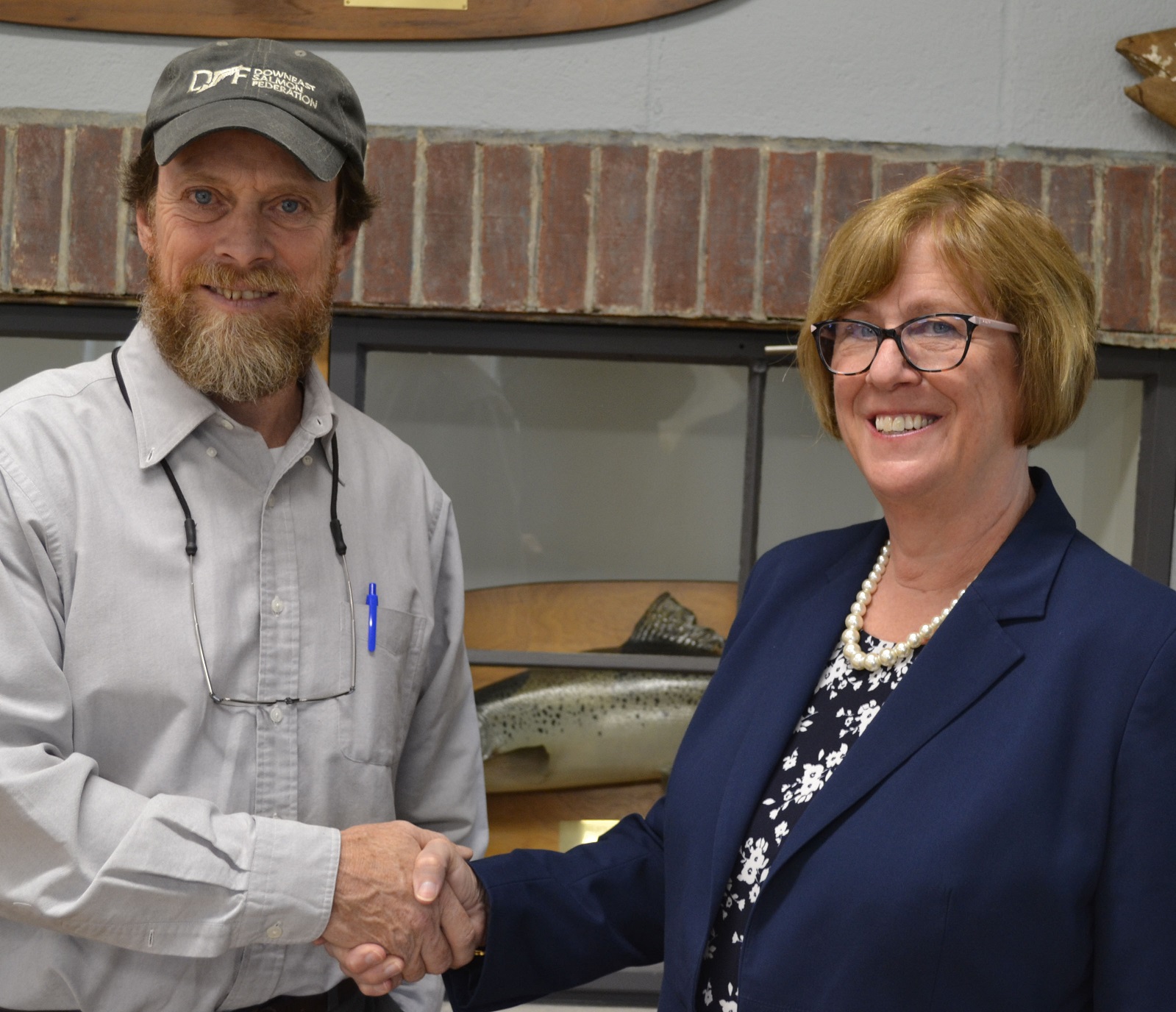
University of Maine at Machias and Downeast Salmon Federation sign partnership agreement

The University of Maine at Machias and the Downeast Salmon Federation (DSF) signed a memorandum of understanding Oct. 2 that formalized the growing partnership between the two organizations.
“Partnering with DSF both broadens and strengthens the STEM programs that the university can offer students,” said Daniel Qualls, head of campus at UMM. “We can get our students out in the field doing real science.”
The MOU recognizes that both organizations have a mutual interest in aquatic research, habitat restoration, diadromous fish recovery, boosting fisheries-related economic activity and environmental sustainability. UMM offers students and scientists while DSF offers a variety of restoration and fisheries-related projects, as well as its hatchery and, once construction is completed, its laboratory in East Machias.
“This agreement will make a tremendous difference to the community,” said Dwayne Shaw, DSF executive director. “The students learn about the aquatic environment, DSF can do more restoration work with their help, the university has more to offer prospective students helping ensure its continued success, and the fisheries recover more quickly bringing jobs and growth into the region. It’s a win/win all around.”
Attending the signing event, held in the Dr. Paul Hermann Conference Room at DSF’s hatchery and laboratory in East Machias, were Joan Ferrini-Mundy, the president of the University of Maine; Daniel Qualls; state and municipal officials; staff from Maine’s congressional delegation; and faculty members from the UMM Science Department. DSF staff gave tours of the conservation hatchery where endangered Atlantic salmon are raised.
The first joint project between the two organizations is a water quality experiment on a tributary of the East Machias River. DSF is putting 12 tons of clamshells — a source of calcium — into the waterway to counteract the acidity caused by acid rain. High acidity hinders the growth of fish — most critically, the endangered Atlantic salmon. UMM students are helping carry the clamshells and collect data.
